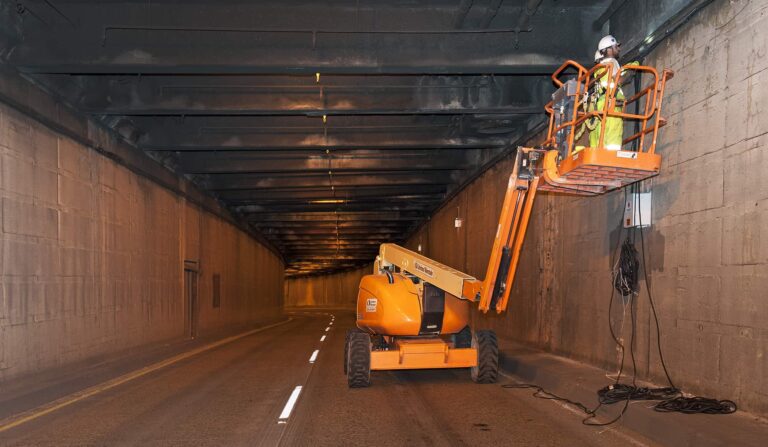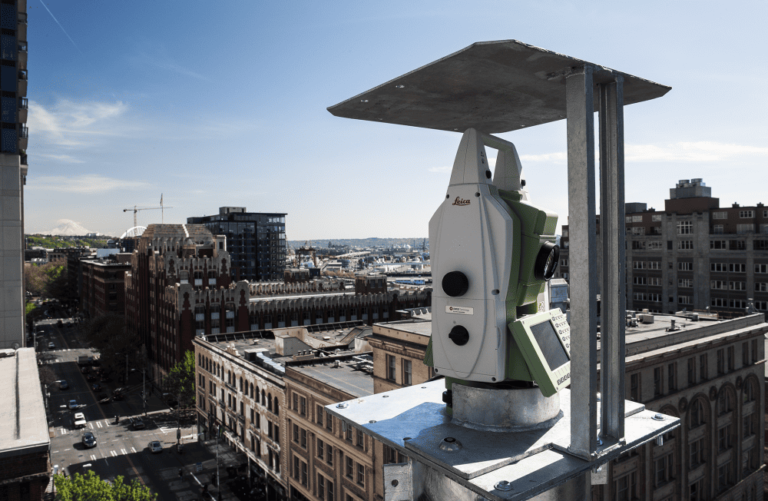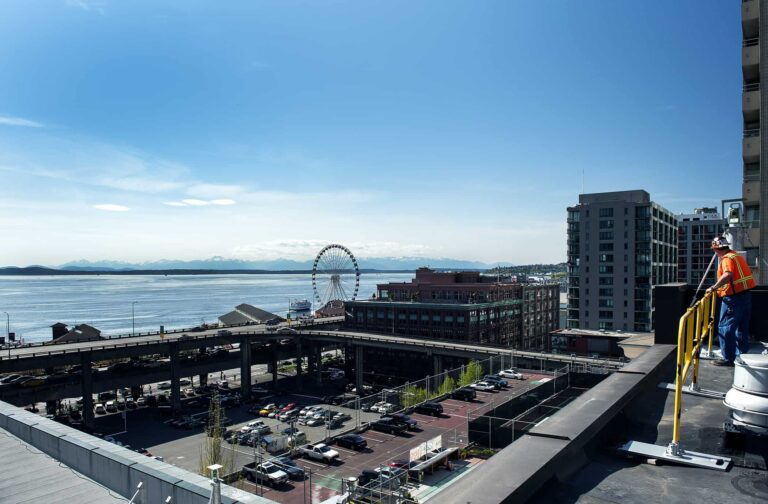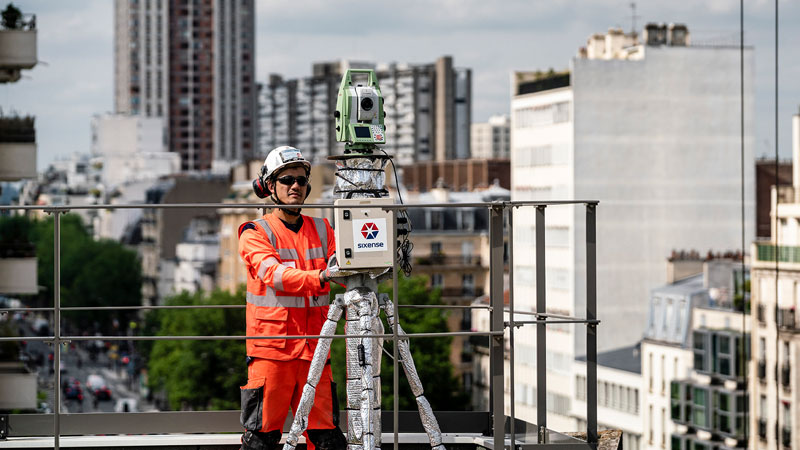Client:
Washington State Department of Transportation
Washington State Department of Transportation link opens in a new tab
https://wsdot.wa.gov/

Alaskan Way Viaduct Replacement
The Alaskan Way Viaduct was completed on April 4, 1853. It was an elevated double-deck section that carried the State Route 99 highway above the Seattle city center through the waterfront at Elliot Bay.
In 2001, the viaduct suffered minor damage after the Nisqually earthquake, and following structural inspections, the state and national governments were persuaded to replace much of the structure with a tunnel beneath the heart of the city.
The new tunnel required the world’s largest EPB-tunnel boring machine (created especially for this project) and in turn, demanded an equally impressive risk management and mitigation system.
Monitoring Network
Sixense was contracted to value engineer one of the most comprehensive and sensitive monitoring networks ever attempted in the United States for the Alaskan Way Viaduct Replacement. Their teams deployed about 4,000 sensors that relied on separate technologies, including:
- Extensometers
- Inclinometers
- Piezometers
- Crack and strain gauges
- Several types of tiltmeters
- Satellite radar interferometry measurements
37 Cyclops (automated monitoring total stations) were also installed on the building roofs and walls and connected to the web-based GIS platform – Geoscope. This decision-making system gathered real-time data 24/7 and was considered the heart of the network. Special attention was paid to converting this data into ready-to-use information for individual project contributors.
Challenges of the Alaskan Way Viaduct Replacement
Along the way, Sixense Northern America overcame challenges:
- The surrounding area was highly urbanized, meaning the project demanded very special attention to detail, as existing buildings, engineered structures, and utility networks were all exposed to the risks inherent in tunnel excavation
- Varying weather conditions, which were sometimes severe and demanding in Seattle
- A large amount of data needed to be analyzed
Despite these issues, Sixense was able to show that monitoring is a mature construction technology that can help cities redevelop safely and effectively.
Cyclops Automated Monitoring Total Stations (AMTS)
Targets
Buildings Monitored
Extensometers
Similar projects




